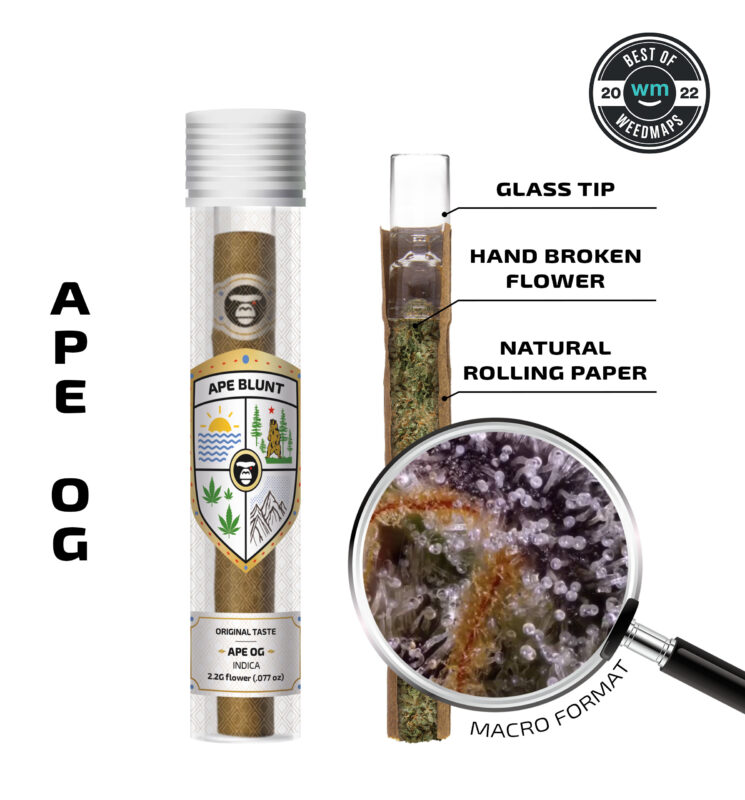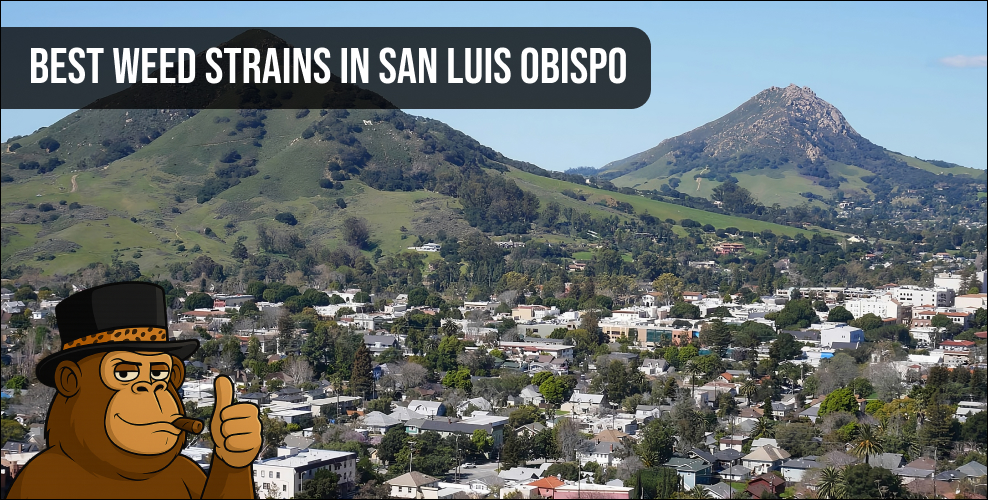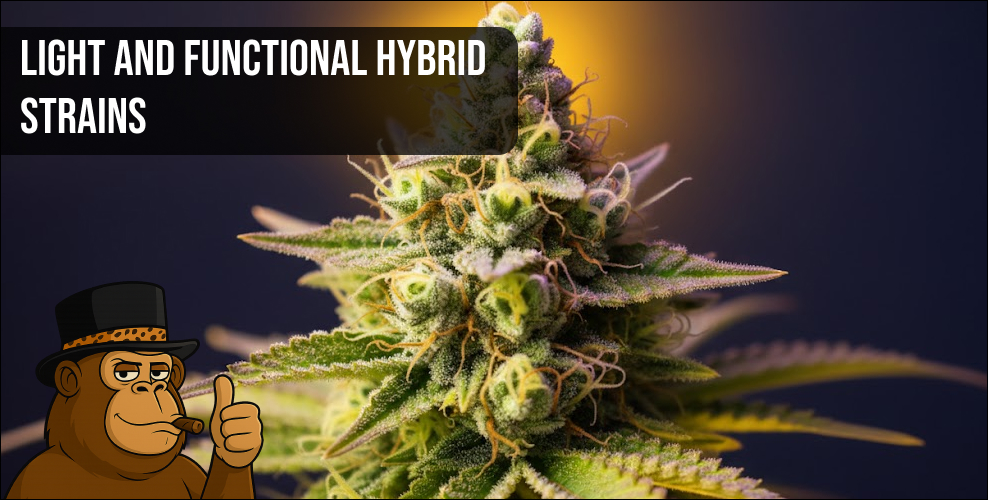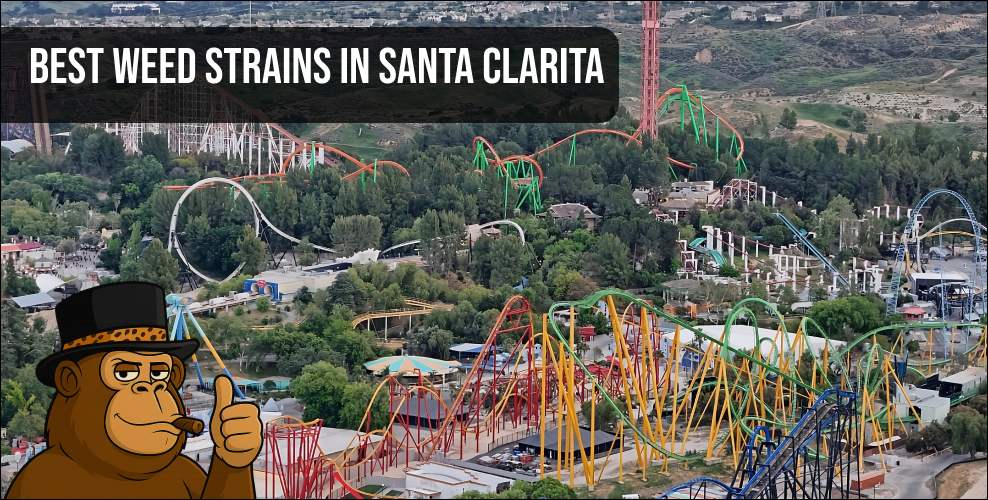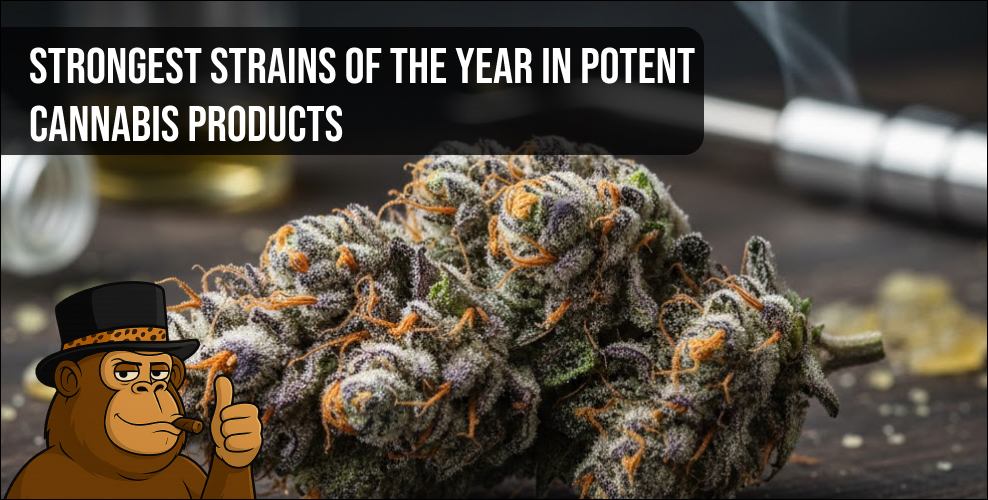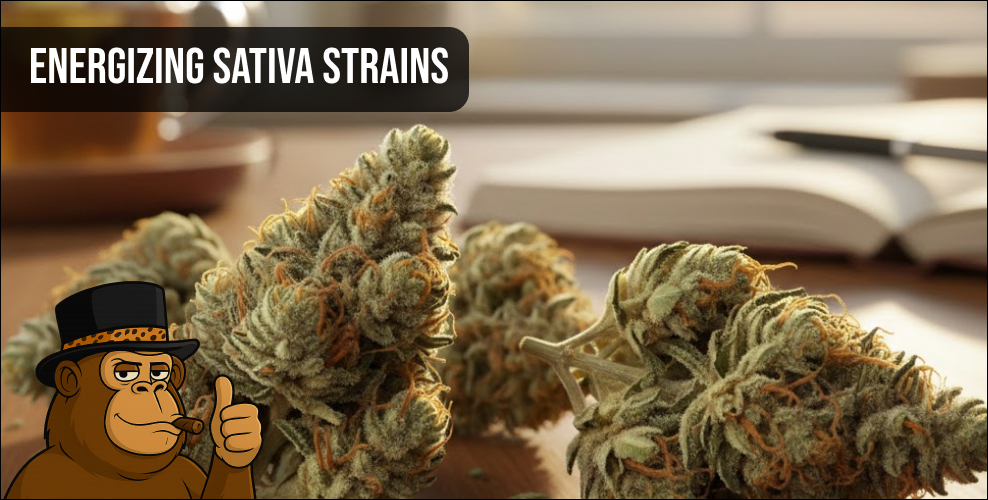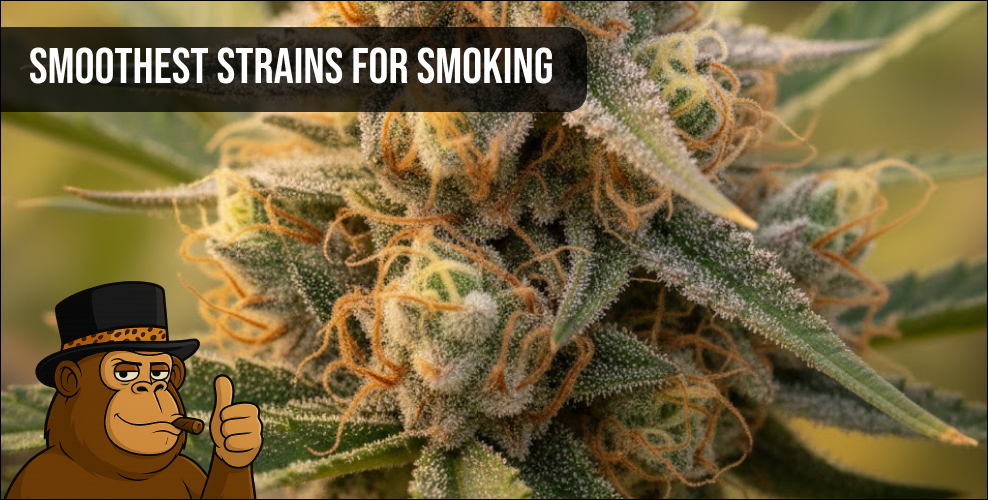Effect of Cannabinoids on Appetite
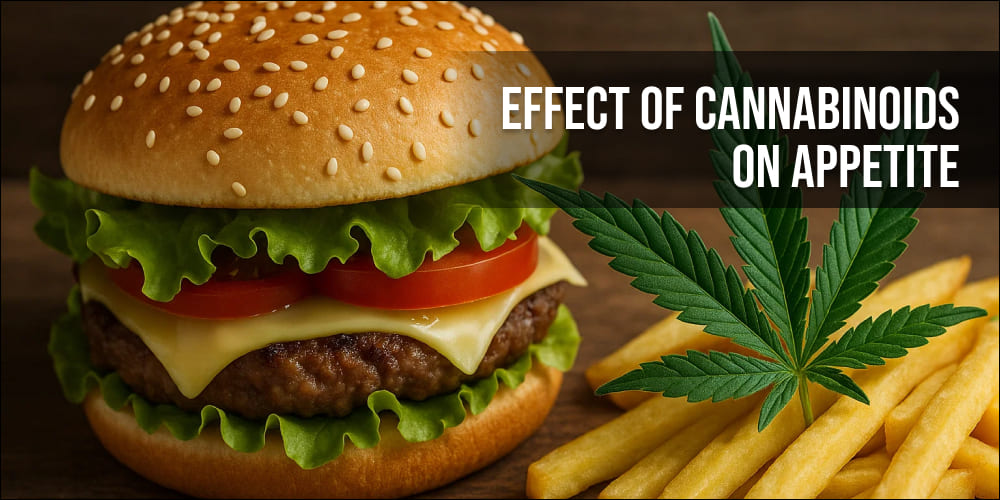
Cannabinoids found in the cannabis plant have a direct impact on appetite by interacting with the body’s endocannabinoid system — a complex network that regulates hunger, satiety, and eating behavior. This system also manages sleep, mood, and metabolism. When cannabinoids enter the body, they bind to receptors that influence hunger signals.
One of the most studied compounds, THC (tetrahydrocannabinol), activates CB1 receptors in the brain, which play a key role in hunger regulation. This is why cannabis consumption is often followed by a strong desire to eat — commonly known as the “munchies.” But not all cannabinoids act the same. Some may even reduce appetite.
Key insights on the effect of cannabinoids on appetite:
- Cannabinoids interact with CB1 and CB2 receptors that regulate hunger signals.
- THC boosts appetite, while CBD and other cannabinoids may reduce it.
- The final effect depends on dosage, consumption method, and individual biology.
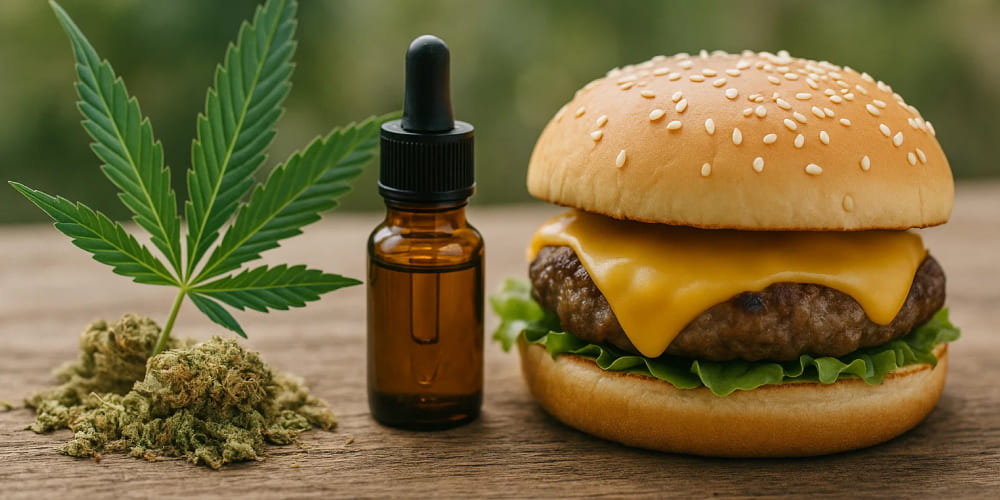
Why THC Makes You Hungry: Appetite on a Neurochemical Level
THC is the most well-known psychoactive compound in cannabis, and it affects the brain like a key unlocking hunger signals. It directly activates CB1 receptors in the hypothalamus, the brain’s appetite center. This results in a strong internal message: “You’re hungry — eat now!” At the same time, it heightens the sense of taste and smell, making food more appealing.
Interestingly, THC can stimulate appetite even when the body doesn’t need more food. It overrides the natural fullness signals, tricking the brain into thinking it’s time to eat again. This false signal is a key part of the effect of cannabinoids on appetite.
Important takeaways:
- THC enhances flavor and scent sensitivity, making food more enjoyable.
- It suppresses leptin, the hormone responsible for feeling full.
- Hunger can be triggered even in a well-fed state.
CBD and Appetite: A Subtle Balancing Act
CBD (cannabidiol), another major cannabinoid, does not create a high but still influences appetite — often in more nuanced ways. In some people, CBD gently encourages eating by easing gastrointestinal discomfort. In others, it reduces anxiety and emotional eating, which can lead to lower food intake overall.
The effect of cannabinoids on appetite, especially CBD, is often indirect. CBD modulates various systems tied to digestion, metabolism, and stress. Because of this, it may either stimulate or suppress hunger based on the individual’s current state.
What to know:
- CBD helps regulate appetite without sudden hunger spikes.
- It reduces stress-related eating by calming the nervous system.
- Effects vary based on dose, product type, and personal response.
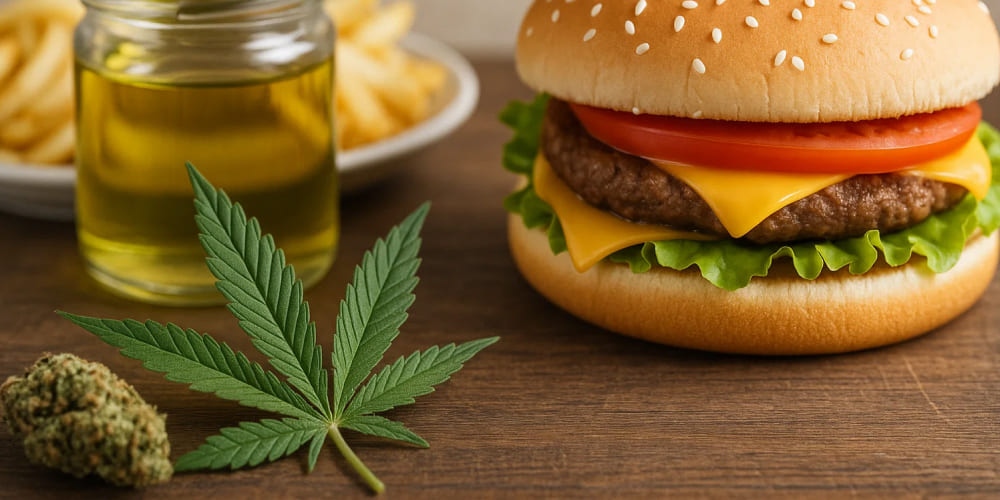
Other Cannabinoids and Their Role in Appetite Control
Beyond THC and CBD, cannabis contains lesser-known cannabinoids with distinct effects on appetite. THCV (tetrahydrocannabivarin), for example, acts almost opposite to THC — it can suppress hunger and is being studied as a tool for weight control.
CBG (cannabigerol) might have a mild stimulating effect on digestion and gut movement, though research is ongoing. These cannabinoids show that the effect of cannabinoids on appetite is not one-size-fits-all — each has a different mechanism of action.
What stands out:
- THCV blocks CB1 receptors, decreasing appetite.
- CBG may promote digestion, potentially triggering hunger.
- Each cannabinoid has a unique role in appetite regulation.
How Consumption Method Alters the Effect of Cannabinoids on Appetite
The way cannabinoids enter the body plays a major role in how they affect hunger. Smoking or vaping cannabis delivers cannabinoids quickly to the brain, often producing an immediate appetite response. Oils and capsules are absorbed more slowly but may lead to a longer-lasting effect. Edibles, like cannabis-infused snacks, have a delayed onset but can produce a stronger and deeper impact.
The method of consumption shapes the effect of cannabinoids on appetite, influencing both intensity and duration.
Main differences:
- Inhalation (smoking or vaping) = fast onset, shorter duration.
- Oils and capsules = slower build, longer-lasting effect.
- Edibles = delayed response, but stronger and more prolonged appetite stimulation.
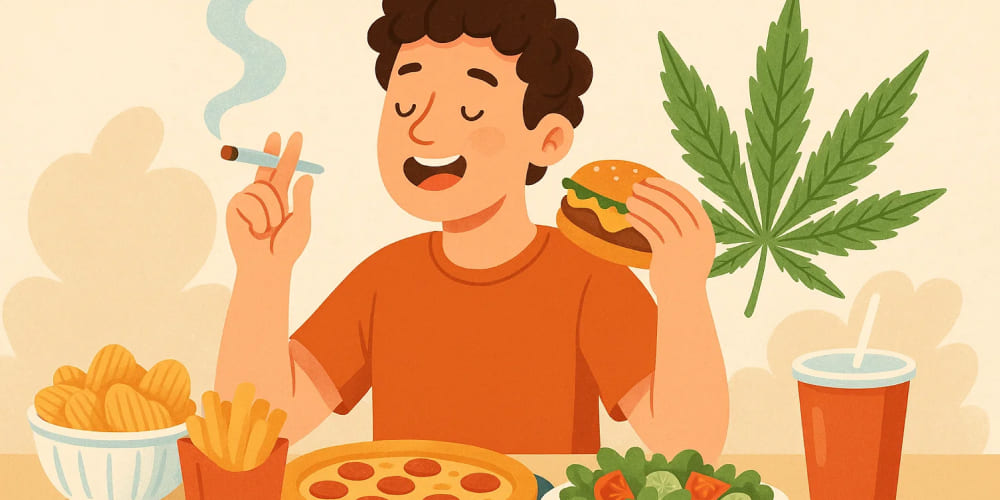
Genetics and Lifestyle: Why Everyone Reacts Differently
Not everyone experiences the effect of cannabinoids on appetite in the same way — and there’s a good reason for that. The human response to cannabinoids is highly individual, shaped by a combination of genetics, metabolism, tolerance levels, and lifestyle factors. Understanding this variability is key for anyone looking to use cannabis products for appetite regulation, whether medically or recreationally.
At the genetic level, the endocannabinoid system itself varies from person to person. Some individuals naturally have more CB1 receptors — the main sites where THC binds to stimulate hunger — while others may have fewer or less responsive receptors. These genetic variations can make one person ravenous after a single puff, while another feels little to no appetite change at all. In essence, genetics can amplify or blunt the effect of cannabinoids on appetite, often in surprising ways.
But it’s not just DNA that shapes the experience. Lifestyle plays a huge role. Factors like diet, stress levels, physical activity, and even sleep patterns can influence how cannabinoids interact with the body. For instance:
- Chronic stress can increase cortisol levels, which may interfere with appetite signaling — cannabinoids might restore balance or intensify cravings, depending on the individual.
- Physical activity affects metabolism and cannabinoid processing speed, altering how long hunger effects last.
- Dietary patterns (such as intermittent fasting or keto diets) can impact the endocannabinoid system’s sensitivity, changing how strongly someone feels the hunger response.
Tolerance is another major factor. Regular cannabis users may notice a reduced effect of cannabinoids on appetite over time. The body adapts to repeated THC exposure by downregulating CB1 receptors, making it harder to trigger that same “munchies” sensation. For therapeutic users relying on appetite stimulation, this means careful dosing strategies and possibly incorporating different cannabinoids like CBD or THCV to maintain effectiveness.
Lastly, mood and mental state matter more than most expect. Someone using cannabis in a relaxed, calm environment may respond more positively to its appetite-enhancing properties. In contrast, high anxiety or depression can interfere with both appetite and cannabinoid response.
In summary, the effect of cannabinoids on appetite is not universal — it’s a mosaic built from biology, habits, and environment. Personalized approaches are essential for safe and effective use, especially when appetite support is the goal.
Medical Applications: Supporting Patients with Appetite Loss
One of the most meaningful areas where the effect of cannabinoids on appetite plays a crucial role is in medical care. Appetite loss is not just a symptom — for many patients, it becomes a dangerous complication. Conditions such as cancer, HIV/AIDS, Crohn’s disease, and advanced age-related disorders often lead to significant weight loss, nutrient deficiencies, and physical exhaustion. When traditional treatments fail, cannabinoids offer a potential solution.
THC, in particular, has been used for decades to stimulate appetite in patients experiencing cachexia (severe weight loss and muscle wasting), especially in the context of cancer or HIV. It works by triggering hunger through the endocannabinoid system, even when the body’s natural cues are shut down by illness or medication side effects. This unique mechanism makes the effect of cannabinoids on appetite not just helpful but essential for many.
Cannabinoid-based medications such as Dronabinol (synthetic THC) and Nabilone are prescribed specifically to help patients regain appetite and improve nutritional intake. These medications are approved in several countries for treating anorexia in AIDS patients and nausea-related appetite loss in chemotherapy.
Where this approach is particularly effective:
- Cancer treatment: Chemotherapy often suppresses appetite and causes nausea. Cannabinoids not only counteract nausea but also help patients feel hungry again, supporting better caloric intake and energy recovery.
- HIV/AIDS: In these patients, maintaining weight is critical. The effect of cannabinoids on appetite helps reverse wasting syndrome, enabling patients to regain strength.
- Neurodegenerative and age-related diseases: In Alzheimer’s or Parkinson’s patients, cannabinoids may improve appetite, reduce agitation, and support overall wellbeing, especially in later stages.
What makes cannabinoids unique is their multi-targeted approach. They not only enhance appetite but also reduce anxiety, improve mood, and ease pain — all of which can contribute to poor eating habits. By addressing these interconnected issues, cannabinoids support a more comprehensive return to healthy eating and better quality of life.
In the future, we may see more targeted formulations — blends of cannabinoids like THC, CBD, and even THCV — used in clinical nutrition to customize appetite support based on individual patient needs. For now, what’s clear is this: the effect of cannabinoids on appetite can mean the difference between wasting away and recovery for many vulnerable individuals.
Final Thoughts: A Multifaceted Impact on Hunger
Cannabinoids do more than simply turn hunger on or off. The effect of cannabinoids on appetite is multi-layered and shaped by the type of cannabinoid, method of consumption, individual biology, and even mental state. While THC often increases appetite, other compounds like THCV may do the opposite.
Understanding these mechanisms allows for more informed use of cannabis — whether for medical treatment or personal wellness. The future of cannabinoid research promises even deeper insights into appetite control and nutritional support.
Summary highlights:
- The effect of cannabinoids on appetite varies by compound and context.
- Individual biology and usage habits strongly influence results.
- Cannabinoids have significant potential in targeted medical and wellness applications.
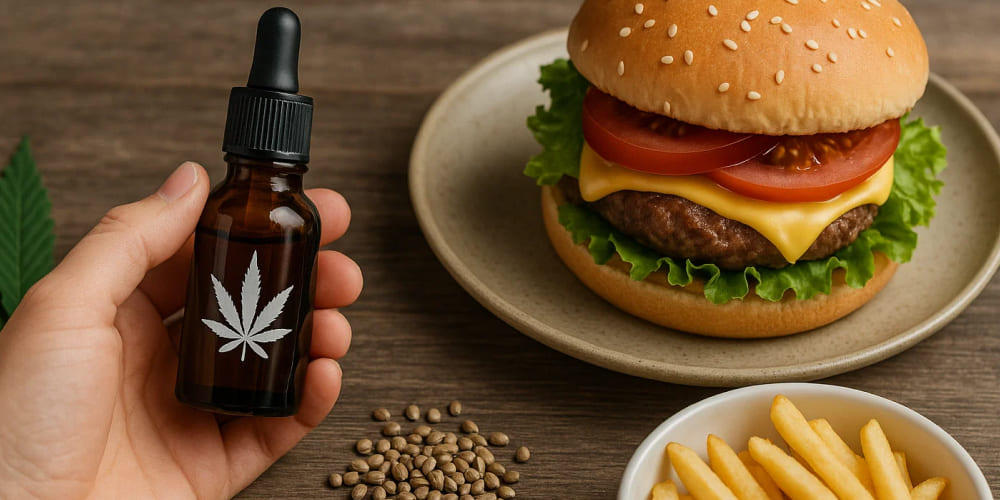
FAQ: Understanding the Effect of Cannabinoids on Appetite
OPEN
How do cannabinoids influence appetite?
Cannabinoids interact with the endocannabinoid system, particularly CB1 receptors found in the brain and digestive tract. THC, the most well-known psychoactive cannabinoid, directly stimulates these receptors, often leading to increased hunger — the classic “munchies.” Other cannabinoids like CBD and THCV can either enhance or suppress appetite depending on the dose and individual biology.
Can CBD increase or decrease appetite?
CBD generally has a more subtle effect on appetite than THC. For some, it may help normalize eating patterns by reducing anxiety or nausea, which can indirectly promote better appetite. For others, it might slightly reduce hunger by improving metabolic balance. It’s not typically associated with intense food cravings but may support overall appetite regulation.
Why do some people feel hungrier than others after using cannabis?
The effect of cannabinoids on appetite varies due to genetics, tolerance, and lifestyle. Some individuals have more responsive CB1 receptors, while others may have developed tolerance from frequent cannabis use. Factors like stress, diet, and metabolism also play roles in how strongly someone feels hunger after consuming cannabinoids.
Is it possible to use cannabinoids for medical appetite support?
Yes. Medical cannabis and synthetic cannabinoids like Dronabinol are prescribed to help patients with appetite loss due to chemotherapy, HIV/AIDS, or chronic illness. The appetite-stimulating properties of THC, in particular, can make a significant difference in maintaining weight and nutritional intake during treatment.
Do all cannabinoids stimulate hunger?
Not all cannabinoids stimulate appetite. While THC is a known appetite enhancer, compounds like THCV can suppress hunger. CBD’s effect is more regulatory and varies depending on the person. That’s why product selection matters — different strains and cannabinoid profiles can have very different impacts on appetite.




